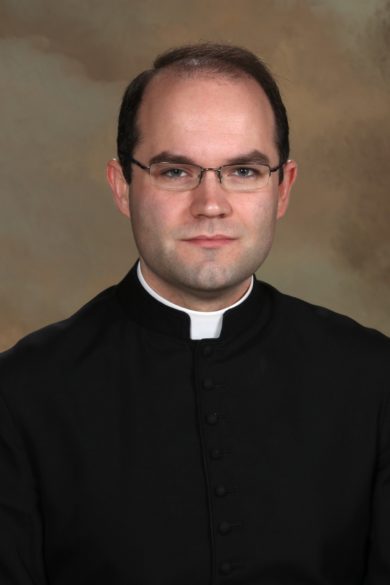SPIRIT AND TRUTH
By Father Aaron Williams
The Constitution on the Sacred Liturgy published by the Second Vatican Council (Sacrosanctum Concilium) does not restrict itself solely to a consideration of the Holy Mass. The celebration of the Divine Office (i.e., the ‘Liturgy of the Hours’) is also given a special place, and the vision outlined by the Council Fathers in this regard is one that still has yet to be fully achieved.
The Divine Office is the daily prayer of the Church as found in the Roman Breviary — which is most commonly understood as the prayer book used by priests and religious doing the day. The celebration of the Office finds its roots in Jewish temple prayer, when the Levitical choir would chant the psalms daily at set hours of the day. St. Luke records in Acts that the Apostles themselves continued this practice, three times mentioning that they went to the temple at the hour of prayer. The early Christians maintained this practice, gradually developing our own tradition of the Office until around the sixth century when the most popularized version of the Office was finalized in the Rule of St. Benedict. This version is still in use today in many monasteries across the globe. As time went on, Diocesan priests began to slowly form their own usage of the Office, using the Monastic offices as a guideline. This form of the Office became known as the ‘Cathedral Office’ or, more commonly, the ‘Roman Breviary.’

Recognizing the strain put on priests in our present day by the lack of clergy and by the fast-paced nature of modern society, the Fathers of the Second Vatican Council sought to simplify the Breviary so make the Office more approachable for priests and religious today, but a second goal was to give the laity an opportunity to join in praying the Office as well. In fact, Sacrosanctum Concilium directs parish priests to see that the chief hours of the Office, especially on Sunday, are publicly celebrated in parishes in addition to the celebration of the Mass (Cf. 100). Regrettably, only a handful of parishes on a national level ever offer even a single celebration of the Divine Office during the year.
But many people who have attended the celebration of one or more offices have experienced the calming feeling that comes from the chanting of the psalter, and the rhythm of following a cycle of prayer in union with the other people present and the church at large. In fact, the Office has historically had such an effect on the laity who attend, that many of the Protestant reformers were insistent at maintaining some form of the Divine Office in their own prayer books precisely so that it could be celebrated and chanted publicly.
In the United States, perhaps the greatest example of the Protestant prayer book office is found at St. Thomas Fifth Avenue Episcopal Church in New York City. The choir of men and boys at St. Thomas chant the Anglican form of the Divine Office on four days of the week, which for many years was broadcast over the radio and, in light of the COVID-19 pandemic, is now video live-streamed and available on-demand. Even though their office is a reduced form of the Catholic office to which I am bound to pray as a priest, for nearly six years I have found great comfort in listening to their chanted offices several times during the week, which is often accompanied by stellar preaching.
Despite the work that still needs to be done in order to accomplish their vision of the Council Fathers, already there are several resources available to assist Catholics in praying the Liturgy of the Hours along with the rest of the church. Apart from buying an expensive four-volume book set, the Divine Office is also available in an app format from iBreviary, Divine Office, or Universalis. The makers of Divine Office also record the office daily which can be listened as a podcast. Another podcast available is called ‘Praystation Portable’, which is better for people with less time because the entire office is recited rather than sung. The of the Abbaye Sainte-Madeleine du Barroux in France also produce a podcast for all their offices which are sung in traditional Gregorian chant in Latin. Because of the time differences between here and France, the Offices are always available well-ahead of time. Our seminarians in New Orleans also video live-stream their celebration of Sunday Vespers each Sunday evening at 5 p.m. via the Notre Dame Seminary Facebook page.
Likewise, in addition to the live-stream of the Episcopal office at St. Thomas Fifth Avenue, there is a Catholic counterpart to the traditional Anglican offices which was put together following a move by Pope Benedict XVI to give Catholic converts the ability to maintain some of their devotional heritage. This reduced office is very approachable for those without time to pray several offices during the day, and also includes longer passages from scripture, making the office a good way to also read through the Bible. This office available at prayer.convert.org.
(Father Aaron Williams is the Parochial Vicar at St. Patrick Parish in Meridian.)
